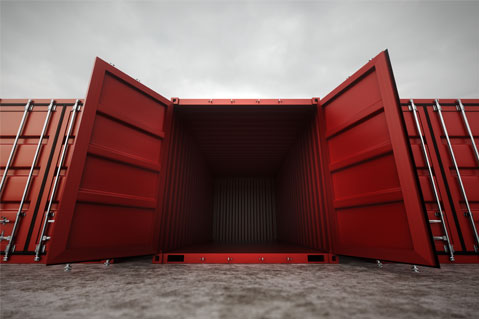September 09, 2016
Shipping Prices Skyrocket, Cargo Stranded Due to Bankruptcy
One of the world’s biggest shipping companies has left billions of dollars’ worth of cargo stranded at sea after filing for bankruptcy. Dozens of Hanjin Shipping Co. ships carrying more than half a million cargo containers have been denied access to ports because of concerns over who would pay for unloading bills and docking fees. The timing is paramount as retailers and other companies gear up for the holiday season.

The South Korea shipping company handles about 8% of all U.S. cargo, but accounts for only 3.2% of global container capacity. Samsung Electronics Co. said it has cargo valued at about $38 million stranded on Hanjin ships in international waters. In order to fulfill its shipment contracts, the tech giant said it’s considering chartering 16 cargo planes to the U.S.
“This is not impacting store shelves now,” Nate Herman, a senior vice president for the American Apparel & Footwear Association, told the Wall Street Journal. “It will impact store shelves if the situation isn’t resolved.” Delays, replacement shipments and other additional costs stemming from the Hanjin crisis will hurt the pockets of cargo owners, retailers, B2B companies, and ultimately consumers.
The Korean government had designated only Los Angeles, Singapore and Hamburg as ports where Hanjin vessels can unload shipments without being seized by creditors. In addition, a bankruptcy judge on Tuesday temporarily granted Hanjin Chapter 15 protection, which offers American bankruptcy protection to foreign companies, including seizure of assets by creditors.
The issue, however, had been the cost of unloading the ships, which Hanjin had previously been unable to pay. The company has secured $45 million so far to pay for docking and unloading of the cargo, but court papers submitted by the company estimated it would cost over $150 million to unload all the cargo. Additional loans can be secured, but South Korea's top financial regulator said that would take "considerable time." For ships already docked at U.S. ports, Hanjin’s lawyer said the company was working with cargo owners to put their items into the supply chain.
“In my 20 years in the business, I’ve never seen anything like this,” said Randy Chen, president of Impex International Inc., a New Jersey-based firm that provides direct import services and U.S.-based warehousing of imports for more than 100 promotional products industry suppliers.
Rates on Asia-U.S. cargo have risen 40% to 50% on all sea lanes, Citigroup reported. Freightos, an online freight shipment booking agency, reported that the average price per container on Asia-U.S. routes rose to $4,423 last Tuesday from $2,835 a week earlier. “All of the other shipping lines are going to jack up their rates,” Chen said. “And unless you’re one of the big dogs, you’ll be at the bottom of the picking order for shipping.”
The issue is also affecting carriers that share vessels with Hanjin, such as China’s Cosco Group, Japan’s Kawasaki Kisen Kaisha Ltd., and Taiwan’s Evergreen Marine Corp. and Yang Ming Marine Transport Corp. The carriers move thousands of Hanjin containers on a daily basis and are confronted with the issue of who will pay to unload the Hanjin shipments.
Jeff Lederer of Top 40 supplier Prime Line (asi/79530) says the supplier is never affected by port slowdowns or strikes because of its factory-direct sourcing lines. In 2014, Prime Line acquired R.O.I. Line by Source Abroad and Get It Global, combining the sourcing lines into Source Abroad – By Prime (asi/88242).
“At Source Abroad by Prime, we have a very special logistics model and partnership where we ship into private ports with specific vessels,” Lederer says. “Therefore, our distributor customers that place large overseas orders with us get their goods to the U.S. much faster, more cost effectively and without interruption.”
